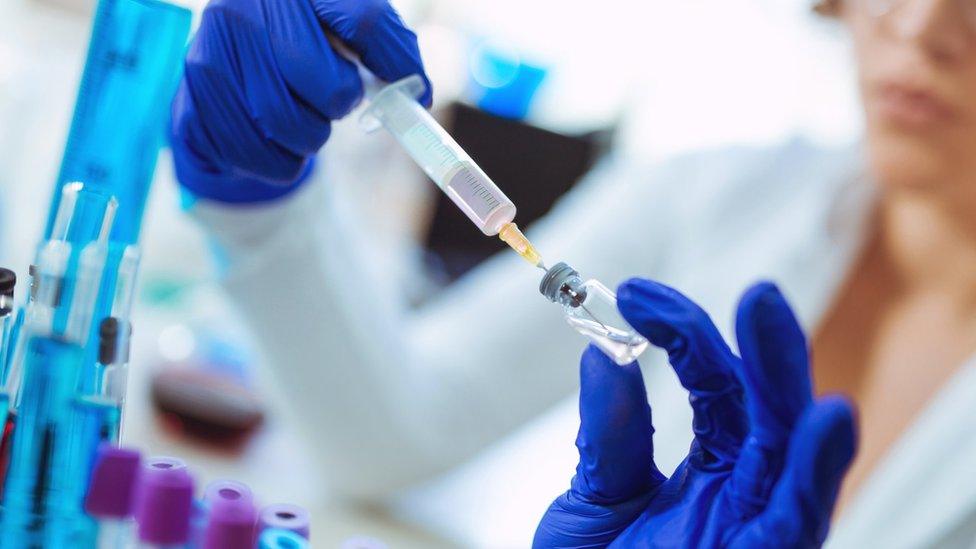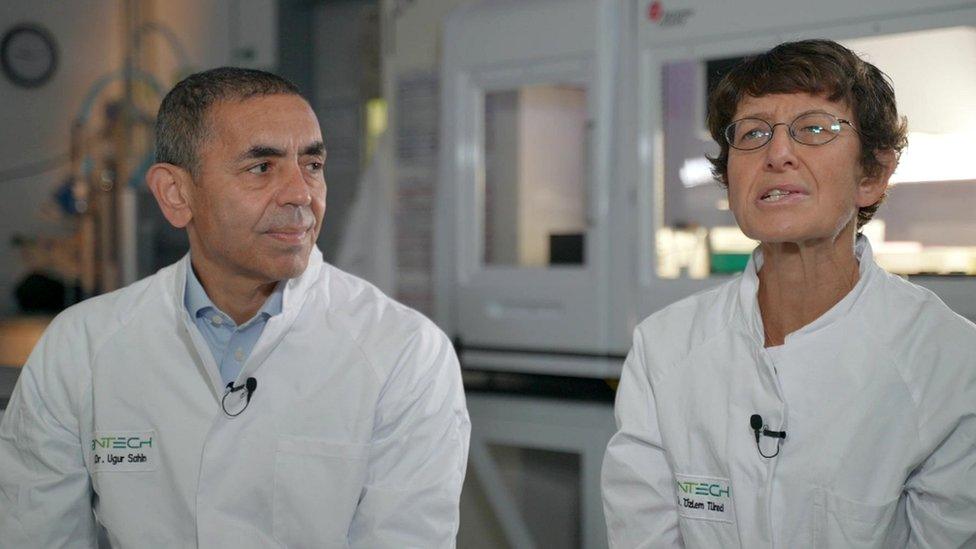Cancer mRNA vaccine completes pivotal trial
- Published

Researchers say they have successfully completed a trial of a personalised cancer vaccine that uses the same messenger-RNA technology as Covid jabs.
The experimental vaccine, made by Moderna and MSD, is designed to prime the immune system to seek and destroy cancerous cells.
Doctors hope work such as this could lead to revolutionary new ways to fight skin, bowel and other types of cancer.
Moderna and MSD called it "a new paradigm" moment.
Other pharmaceutical companies are looking to run similar studies.
But this is the first phase-IIb randomised clinical trial to test the investigational mRNA vaccine in patients.
Could Covid vaccine technology crack cancer?
Patients taking Keytruda for advanced melanoma were less likely to die, or have the skin cancer reoccur, if they also had the jab, mRNA-4157/V940, Moderna and MSD said.
The findings, in 157 patients, have not yet been scrutinised by independent experts or regulators.
More trials will be needed to check how effective the treatment might be.
Moderna's chief medical officer Paul Burton said: "This is a significant finding. It's the first randomised-trial testing of an mRNA therapeutic in cancer patients.
"It's shown a 44% relative reduction in the risk of dying of cancer or having your cancer progress. That's an important finding and I think it has the potential to be a new paradigm in the treatment of cancer patients."
'Very exciting'
Tailormade to match each patient's cancer, the vaccine is very expensive to make - although, the company has not named a price.
Prof Alan Melcher from The Institute of Cancer Research said: "There's no question, this is very exciting. These results show the feasibility of making and delivering personalised vaccines to treat cancer, and that the vaccine can add benefit to current treatments.
"These results establish the principle that this complex technology is doable."
Consultant colorectal surgeon at the University of Birmingham Mr Andrew Beggs said: "Although early data, it is very encouraging that this is a likely effective treatment option in the future.
"This advance is likely to have important implications for metastatic cancer patients in the future and opens a new therapeutic avenue for these patients."
Dr Sam Godfrey from Cancer Research UK, said: "There is unlikely to be a single cure for cancer and we must focus on ways to tailor treatment for patients. These results are grounds for optimism that the science which helped get us out of the pandemic could add another powerful treatment option for cancer in the future."
Related topics
- Published15 October 2022
